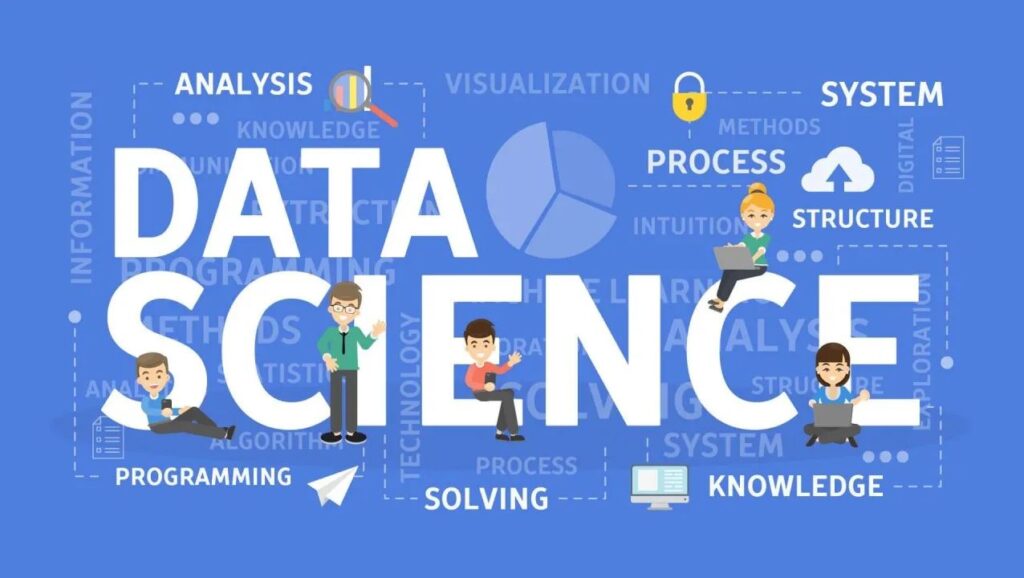
Course Content: Data Science Training in Ludhiana
Module 1: Introduction to Data Science
- Overview of Data Science
- Role of a Data Scientist
- Data Science Process
- Tools and Software Setup
Module 2: Data Collection and Cleaning
- Data Sources and Types
- Data Collection Methods
- Data Cleaning and Preprocessing Techniques
- Handling Missing Data
Module 3: Exploratory Data Analysis (EDA)
- Data Visualization with Matplotlib and Seaborn
- Summary Statistics
- Data Distributions and Outliers Detection
- Correlation Analysis
Module 4: Data Manipulation and Transformation
- Data Wrangling with Pandas
- Feature Engineering
- Data Transformation Techniques
- Data Normalization and Scaling
Module 5: Machine Learning Fundamentals
- Supervised, Unsupervised, and Semi-Supervised Learning
- Model Selection and Evaluation
- Cross-Validation Techniques
- Bias-Variance Tradeoff
Module 6: Regression Analysis
- Linear Regression
- Polynomial Regression
- Multiple Regression
- Model Evaluation Metrics (RMSE, R-squared)
Module 7: Classification Algorithms
- Logistic Regression
- Decision Trees
- Random Forest
- Support Vector Machines (SVM)
- k-Nearest Neighbors (k-NN)
- Naive Bayes
Module 8: Unsupervised Learning
- Clustering Algorithms (K-Means, Hierarchical)
- Dimensionality Reduction (PCA, t-SNE)
- Association Rules (Apriori Algorithm)
Module 9: Time Series Analysis
- Time Series Data
- ARIMA Models
- Seasonal Decomposition
- Time Series Forecasting Techniques
Module 10: Natural Language Processing (NLP)
- Text Preprocessing
- Tokenization and Text Vectorization
- Sentiment Analysis
- Text Classification
- Named Entity Recognition (NER)
Module 11: Deep Learning (Optional)
- Introduction to Neural Networks
- Convolutional Neural Networks (CNNs)
- Recurrent Neural Networks (RNNs)
- Transfer Learning with Pretrained Models
Module 12: Big Data and Distributed Computing (Optional)
- Introduction to Big Data
- Hadoop and MapReduce
- Apache Spark
- Distributed Databases (e.g., NoSQL)
Module 13: Data Visualization
- Data Visualization Tools (e.g., Matplotlib, Seaborn, Plotly)
- Interactive Visualizations (e.g., D3.js)
- Dashboard Development
Module 14: Model Deployment and Productionization
- Model Deployment Strategies
- RESTful APIs for Model Deployment
- Containerization with Docker
- Orchestrating Containers with Kubernetes
Module 15: Ethical and Legal Considerations
- Data Privacy and Security
- Bias and Fairness in Machine Learning
- Regulatory Compliance (e.g., GDPR)
- Ethical Decision-Making
Module 16: Capstone Project
- Real-world Data Science Project
- End-to-end Project Lifecycle
- Presentation and Documentation
Module 17: Additional Topics (Optional)
- Reinforcement Learning
- Bayesian Methods
- Anomaly Detection
- Recommender Systems
This structured Data Science Course in Ludhiana provides a step-by-step learning path for students interested in data science. It’s worth noting that the modules can vary in duration and depth depending on the course and the audience’s prior knowledge. Additionally, hands-on projects and practical exercises are often integrated into each module to reinforce the concepts learned.

Data Science Training Certification
Earn your certificate
Your certificate and skills are vital to the extent of jump-starting your career and giving you a chance to compete in a global space.
Share your achievement
Talk about it on Linkedin, Twitter, Facebook, boost your resume or frame it- tell your friend and colleagues about it.
Data Science Course Fee and Duration in Ludhiana
| Track | Regular Track | Weekend Track | Fast Track |
|---|---|---|---|
| Course Duration | 45 – 60 Days | 8 Weekends | 5 Days |
| Hours | 2 hours a day | 3 hours a day | 6+ hours a day |
| Training Mode | Live Classroom | Live Classroom | Live Classroom |